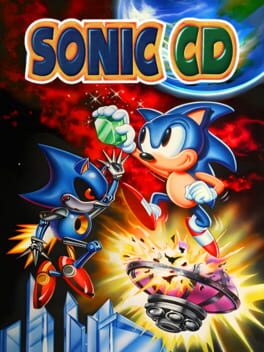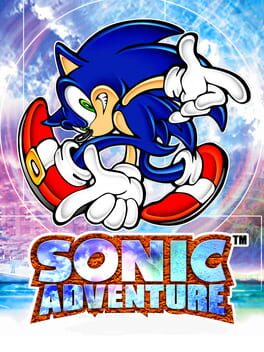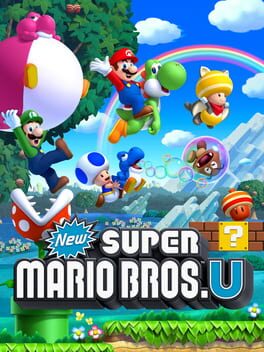terbik
Bio
Nothing here!
Badges

Best Friends
Become mutual friends with at least 3 others

Liked
Gained 10+ total review likes

Noticed
Gained 3+ followers
087
Total Games Played
000
Played in 2024
000
Games Backloggd
Recently Reviewed See More
Ah, "Sonic CD," a game that swings like a jazz quartet on an off night—lots of ambition but the rhythm just isn't there. Imagine if Duke Ellington sat down at the piano, poised to deliver a soul-stirring number, and instead, we got the tinny tunes reminiscent of a speakeasy band on their first gig—unpolished, unrefined, and unexpectedly underwhelming. That's the soundtrack of "Sonic CD," trying to be the Miles Davis of video game music but landing more in the realm of a forgotten lounge act.
Then there's the level design, which feels like something straight out of a Groucho Marx routine—chaotic, confusing, and running into its own punchlines. You could almost hear Groucho quipping, "Why, they've got levels going everywhere and nowhere at once, just like my love life!" The paths twist and turn with all the perplexity of a Laurel and Hardy skit, where every doorway leads to another slapstick mishap rather than to the finish line.
Navigating through "Sonic CD" is akin to sitting through a Henny Youngman one-liner marathon—after a while, the confusion isn't just part of the act, it is the act. Each level feels like it's been designed on the whims of a stand-up comic mid-routine, where not even the performer knows the ending. It's like the game is playing its own private joke, but forgot to let the player in on the laugh.
In essence, "Sonic CD" is that late-night jazz club gig you hoped would be memorable, but the band wasn't quite up to the task. The game reaches for the stars but ends up playing in the backrooms of the gaming world, where the lights are dim and the crowd is unforgiving. So here’s to "Sonic CD," a game that aspires to be the headline act but ends up as the warm-up band, still tuning its instruments as the audience files in.
Then there's the level design, which feels like something straight out of a Groucho Marx routine—chaotic, confusing, and running into its own punchlines. You could almost hear Groucho quipping, "Why, they've got levels going everywhere and nowhere at once, just like my love life!" The paths twist and turn with all the perplexity of a Laurel and Hardy skit, where every doorway leads to another slapstick mishap rather than to the finish line.
Navigating through "Sonic CD" is akin to sitting through a Henny Youngman one-liner marathon—after a while, the confusion isn't just part of the act, it is the act. Each level feels like it's been designed on the whims of a stand-up comic mid-routine, where not even the performer knows the ending. It's like the game is playing its own private joke, but forgot to let the player in on the laugh.
In essence, "Sonic CD" is that late-night jazz club gig you hoped would be memorable, but the band wasn't quite up to the task. The game reaches for the stars but ends up playing in the backrooms of the gaming world, where the lights are dim and the crowd is unforgiving. So here’s to "Sonic CD," a game that aspires to be the headline act but ends up as the warm-up band, still tuning its instruments as the audience files in.
Sonic Adventure, whilst heralded as a tale of vibrancy and swiftness upon its inception, doth indeed falter in its execution upon the Dreamcast. The endeavor, which oughtest to be a splendid journey through realms fantastical and lush, doth frequently encounter divers hindrances in form both glitchy and janky. The apparatus of control, designed to navigate our fleet-footed hero through perils manifold, oftentimes provokes frustration with its imprecision and obstinacy. Furthermore, the spectacle of the graphics, albeit filled with a multitude of hues, doth not fully exploit the robust capabilities of the Dreamcast, thus rendering a visual feast that is but underwhelming.
In truth, the fabric of this game, meant to weave a narrative as rich and engaging as any minstrel's tale, doth struggle under the weight of its technical shortcomings. Whilst the concept and the world within which it dwells are crafted with a vision grand, the reality doth oft betray the promise. Players might find themselves ensnared by unexpected foibles and vexations, much like a knight errant entangled in a thicket deep within the enchanted forest. Thus, though Sonic Adventure bears the semblance of a grand epic, it doth not quite ascend to the heights of glory that one might hope for from such a storied franchise.
In truth, the fabric of this game, meant to weave a narrative as rich and engaging as any minstrel's tale, doth struggle under the weight of its technical shortcomings. Whilst the concept and the world within which it dwells are crafted with a vision grand, the reality doth oft betray the promise. Players might find themselves ensnared by unexpected foibles and vexations, much like a knight errant entangled in a thicket deep within the enchanted forest. Thus, though Sonic Adventure bears the semblance of a grand epic, it doth not quite ascend to the heights of glory that one might hope for from such a storied franchise.
In the ever-expanding tapestry of the video game universe, "New Super Mario Bros. U" emerges as a paradoxical blend of nostalgia and modernity, a Sisyphean endeavor encapsulating both the zenith of platforming joy and the nadir of creative stagnation. This iteration, while donning the vibrant hues of innovation and the sleek mantle of HD graphics, paradoxically ventures not into the uncharted wilds of imagination but rather treads the well-worn paths of its ancestors, a shadow chasing the eternal sunlight of its predecessors.
At its core, the game is a meticulously polished mirror, reflecting the radiant joys of past adventures while simultaneously revealing the smudges of redundancy that mar its surface. It is akin to a grand symphony orchestra playing a composition of unparalleled beauty, yet one cannot shake the feeling that this symphony has been performed one time too many, the notes, though flawless, lacking the vibrant spark of originality.
The introduction of the Wii U's gamepad was poised as Icarus' wings, promising to elevate the series to unprecedented heights. However, this innovation serves more as a waxen appendage, melting under the scrutiny of expectation, revealing that the game, much like Icarus, flies too close to the sun of its glorious past, ultimately to plummet into the sea of familiarity.
The cooperative gameplay, a potential crucible for forging new experiences, instead becomes a theatre where the ghosts of past mechanics play out the same old dramas. It is as if the game stands at the edge of a precipice, gazing out into the vast possibilities of creation, only to retreat into the safety of the familiar, a ship that never sets sail for fear of the stormy seas of innovation.
Yet, within this critique lies a paradoxical acknowledgement: "New Super Mario Bros. U" is not inherently flawed. Its sin is not one of incompetence but of complacency. It is a meticulously crafted piece of artistry, a Sistine Chapel ceiling painted with the same brushstrokes for the umpteenth time. The craftsmanship is undeniable, the joy palpable, yet one cannot help but mourn for what might have been, for the paths untraveled, for the adventures not taken.
In the grand narrative of the Mario franchise, "New Super Mario Bros. U" will be remembered not as a flawed gem, but as a testament to the series' enduring legacy and its struggle to reinvent itself. It is a game that simultaneously embraces its heritage and is ensnared by it, a lighthouse that shines brightly yet illuminates the same stretch of shore. In its reflection, we see not just the game itself, but the challenge of innovation in the face of success, the delicate dance between honoring the past and forging the future.
At its core, the game is a meticulously polished mirror, reflecting the radiant joys of past adventures while simultaneously revealing the smudges of redundancy that mar its surface. It is akin to a grand symphony orchestra playing a composition of unparalleled beauty, yet one cannot shake the feeling that this symphony has been performed one time too many, the notes, though flawless, lacking the vibrant spark of originality.
The introduction of the Wii U's gamepad was poised as Icarus' wings, promising to elevate the series to unprecedented heights. However, this innovation serves more as a waxen appendage, melting under the scrutiny of expectation, revealing that the game, much like Icarus, flies too close to the sun of its glorious past, ultimately to plummet into the sea of familiarity.
The cooperative gameplay, a potential crucible for forging new experiences, instead becomes a theatre where the ghosts of past mechanics play out the same old dramas. It is as if the game stands at the edge of a precipice, gazing out into the vast possibilities of creation, only to retreat into the safety of the familiar, a ship that never sets sail for fear of the stormy seas of innovation.
Yet, within this critique lies a paradoxical acknowledgement: "New Super Mario Bros. U" is not inherently flawed. Its sin is not one of incompetence but of complacency. It is a meticulously crafted piece of artistry, a Sistine Chapel ceiling painted with the same brushstrokes for the umpteenth time. The craftsmanship is undeniable, the joy palpable, yet one cannot help but mourn for what might have been, for the paths untraveled, for the adventures not taken.
In the grand narrative of the Mario franchise, "New Super Mario Bros. U" will be remembered not as a flawed gem, but as a testament to the series' enduring legacy and its struggle to reinvent itself. It is a game that simultaneously embraces its heritage and is ensnared by it, a lighthouse that shines brightly yet illuminates the same stretch of shore. In its reflection, we see not just the game itself, but the challenge of innovation in the face of success, the delicate dance between honoring the past and forging the future.


